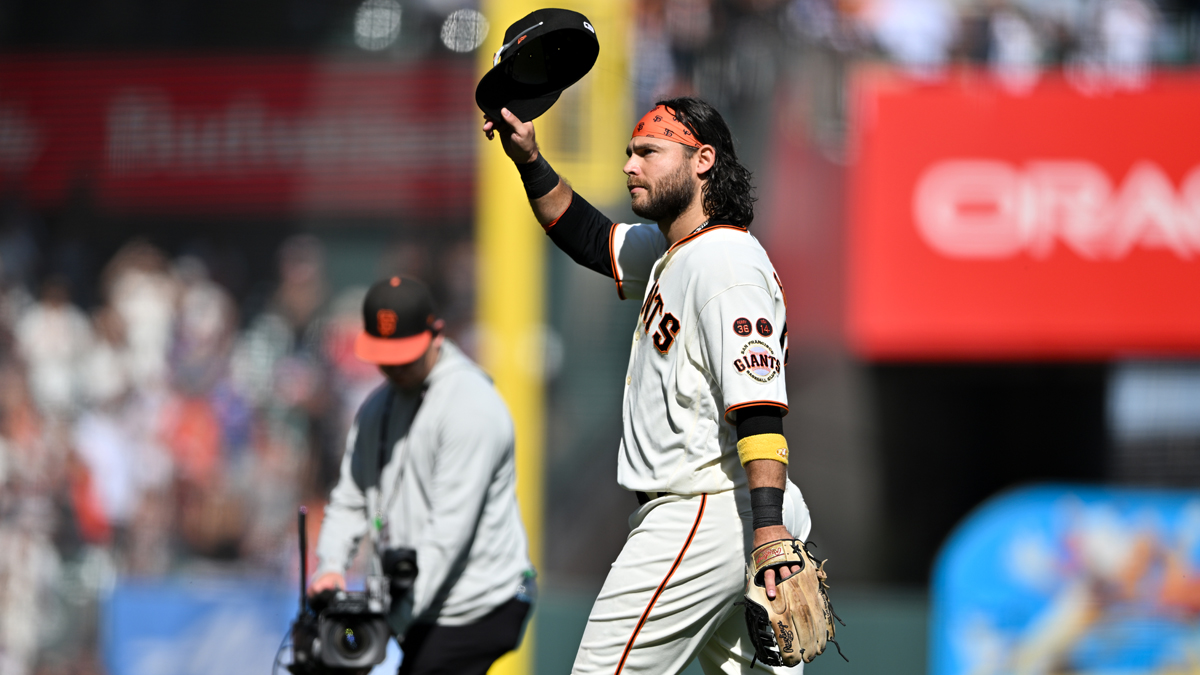With much of this nation taking deliberate measures to return to the willful ignorance and legislated injustice centuries past, it is fascinating that the barons of Major League Baseball, of all American sports, would stand up to offer a lesson in vile American history.
“MLB at Rickwood Field: A Tribute to the Negro Leagues,” at Rickwood Field in Birmingham – culminated by a game between the San Francisco Giants and St. Louis Cardinals on Thursday – is a showcase for one of the most visible symbols of blatant discrimination.
Though this is not an art exhibit featuring sepia-toned photographs of deceased Freedom Riders, it is a reminder of American life as it was in Alabama and beyond during the first half of the 20th century.
Stay in the game with the latest updates on your beloved Bay Area and California sports teams! Sign up here for our All Access Daily newsletter.
Rickwood is where Willie Mays played his first professional game, as a member of the Birmingham Black Barons. He was 17 years old, a teenager among those as steeped in as much manhood as was allowed for those told where they could and could not eat, sleep, learn, or have a drink of water.
Mays had not planned to be in Birmingham this week. He hadn’t traveled much of late. The ravages of time had stolen much of his mobility and sight. And, on Tuesday, six weeks after his 93rd birthday and two days before the game played in his honor, he passed away.
Mays’ spirit, however, will be the star of the proceedings. As it should be. He was at or near the top of the greatest ballplayer ever, and Rickwood was his professional cradle. It was his first step toward a Hall of Fame career, most of which was spent with the Giants, first in New York and then in San Francisco.
The week was conceived to give him the flowers he so richly deserved.
San Francisco Giants
Find the latest San Francisco Giants news, highlights, analysis and more with NBC Sports Bay Area and California.
Mays entered pro baseball to racist taunts on the field and segregated hotels and dining rooms off it. He was subjected, in “liberal” San Francisco, to brazen housing discrimination as well as harassment that included a message of racial hate inside a bottle thrown through his front window. Though Willie endured, it is reasonable to believe the daily stress exhausted his wife, Marghuerite, and contributed to their divorce.
Mays did not endure. He prospered. He didn’t speak out, but the sting of hatred seemed to inject him with a superpower. He batted better than .300 in each of his first seven seasons in San Francisco (1957-63) and had more walks than strikeouts over that span.
Flowers seem insufficient for someone who lived through so much and was covertly and overtly subjected to some of America’s ugliest tendencies.
After tolerating the typical abuse laid upon a Black boy in post-depression Alabama, Mays assumed his only path to pro baseball was through the Negro Leagues. Until three weeks before his 16th birthday, when MLB finally allowed a Black man, Jackie Robinson, to cross the color line, Rickwood Field was Willie’s ballpark of dreams, a Black Barons uniform his fantasy.
The story of baseball, and of America, cannot be candidly told without including Rickwood Field. Most of those enshrined in the Hall of Fame have planted feet on its dirt. It’s the oldest ballpark in the land, built in 1910, and surely has the deepest vault of bittersweet memories.
It’s only right that, to celebrate Mays, baseball’s aristocracy convene in Birmingham this week. Mays’ godson Barry Bonds, MLB’s career home run leader, will be there. Bonds and New York Yankees legend Derek Jeter are captains for the Celebrity Softball Game on Wednesday. Dusty Baker, who made his MLB debut 56 years ago and as a manager is seventh on the career wins list, will be present.
No less significant is the number of players representing the Bay Area: Oakland’s Jimmy Rollins and Dontrelle Willis, both of whom graduated from Encinal High School in Alameda, and Vallejo’s CC Sabathia. Historical moments deserve considerable attendance.
The Rev. Bill Greason, at age 97 the oldest living player from the Negro Leagues, will throw out the first pitch Thursday for the game that will serve as the epilogue for the event.
This is a welcome development. Thoughtful, too, as “MLB at Rickwood Field: A Tribute to the Negro Leagues” is about much more than sniffing nostalgia. It’s a moment to reflect and, hopefully, inspire.
We live in a new age of book banning, the Return to Ignorance movement. DEI (Diversity, Equity and Inclusion) programs, popular four years ago as a bridge to a brighter future for a multicultural society, are now treated by many as a superfluous – or repugnant – precept. Many politicians, our elected “leaders,” are spraying indignation and promoting destabilization.
MLB’s own past and present are rife with racial and ethnic bias. When examining all levels, from players to management to ownership, this is as evident in 2024 as it was in 1944, only to a lesser degree.
This is why stories like Rickwood Field and its significance now, more than ever, must be told. Shouted. Every road to the intersection of understanding and acceptance begins with an objective tour of enlightenment.
May this week, as Mays watches from the great beyond, be both memorable and effectual.


